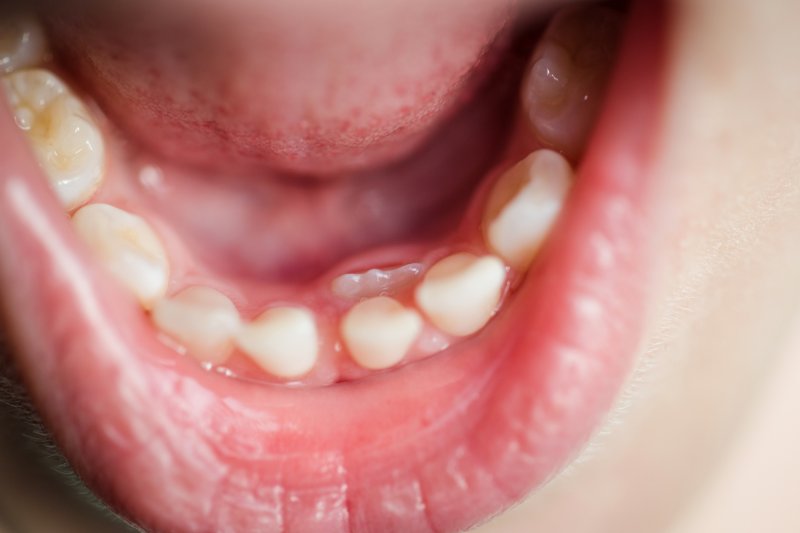Extra Teeth Growing in Gums: Understanding the Phenomenon
Last Updated on 6 months by DR. ALBIN SIPES
Extra teeth growing in gums, known as supernumerary teeth, can occur due to genetic factors, trauma, or hormonal imbalances. This condition can lead to overcrowding or misalignment of the existing teeth and may require extraction.
While not all supernumerary teeth cause problems, they should be evaluated by a dentist to determine the best course of action. Supernumerary teeth, also called extra teeth, can pose various issues if left untreated. From impacting the alignment of existing teeth to causing discomfort and difficulty with oral hygiene, these additional teeth require attention.
Understanding the causes, symptoms, and treatment options for supernumerary teeth is essential for maintaining optimal oral health. By addressing these concerns proactively, individuals can prevent potential complications and achieve a healthy, well-aligned smile.
What Causes Supernumerary Teeth
Supernumerary teeth, or extra teeth growing in gums, can be caused by a combination of genetic factors and environmental factors. Genetic factors, such as familial patterns and hereditary influences, play a significant role in the development of extra teeth. Furthermore, certain environmental factors, such as exposure to radiation or certain chemicals, can also contribute to the presence of supernumerary teeth. Additionally, individuals with certain syndromes or disorders, such as cleidocranial dysplasia or Gardner syndrome, are more likely to have supernumerary teeth. Understanding the various causes of supernumerary teeth can provide valuable insights into their development and potential treatment options.
Identifying Extra Teeth Development
Extra teeth growing in the gums, also known as supernumerary teeth, may not always present obvious symptoms. However, some common signs to watch for include overcrowding of teeth, gaps between teeth, and irregular positioning of existing teeth. Dental examination and diagnosis involve a thorough assessment of the oral cavity to detect any abnormal tooth development. This process may include a visual inspection, palpation of the gums, and evaluation of dental X-rays. Imaging tests such as panoramic radiography or cone-beam computed tomography (CBCT) can aid in accurately identifying the presence and location of extra teeth within the gums.
Impact On Oral Health
When extra teeth grow in the gums, it can have a significant impact on oral health. The presence of additional teeth can cause overcrowding and misalignment, leading to potential issues with adjacent teeth. This can lead to increased risks of gum disease as tight spaces between teeth can be difficult to clean effectively. Patients may also face challenges with maintaining oral hygiene due to the presence of extra teeth. The development of extra teeth in the gums requires careful monitoring and management to prevent adverse effects on oral health.
Treatment Options Explored
Extraction: If the extra teeth are causing pain or alignment issues, extraction may be necessary to prevent further complications.
Orthodontic Interventions: In some cases, orthodontic treatment may be recommended to correct the positioning of the extra teeth and align the jaw properly.
Monitoring and Management Strategies: Regular monitoring by a dental professional is crucial to track the growth and development of the extra teeth. This can help in identifying any potential issues early and implementing appropriate management strategies.
Managing The Psychological Effects
Extra teeth growing in gums can have a significant impact on a person’s self-esteem and psychological well-being. It is important to provide support systems and coping mechanisms for individuals dealing with this condition. Helping patients navigate through the emotional challenges and educating them about their condition can empower them to better manage the psychological effects associated with the presence of extra teeth. Patients may benefit from awareness programs that provide valuable information and resources to help them understand and address the psychological impact of this oral health issue.
Preventive Approaches
Extra teeth growing in gums can be a concerning occurrence, but preventive approaches can help address this issue. Early detection of extra teeth is crucial for effective treatment, highlighting the importance of regular dental check-ups. Dentists can identify and address any abnormal tooth growth at an early stage, preventing potential complications. Moreover, maintaining a balanced and nutritious diet, along with adopting healthy lifestyle choices, can contribute to overall dental health and reduce the risk of extra teeth development. Avoiding habits that can negatively impact dental health, such as smoking and excessive sugar consumption, can also play a significant role in preventing abnormal tooth growth.

Credit: www.harrisonburgsmiles.com
Conclusion
Extra teeth growing in the gums, known as supernumerary teeth, can be a surprising and concerning issue. Understanding the causes, symptoms, and treatment options is crucial for maintaining good oral health. If you suspect having extra teeth in your gums, consulting a dental professional is essential for accurate diagnosis and appropriate management.


